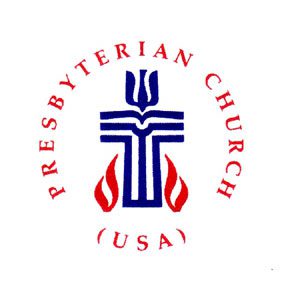Why Write This Series on “What is a Church?”?
This is the second post in a series I’m calling: What is a Church? Biblical Basics for Christian Community. Yesterday, I explained that I’m planning to answer this question from a biblical point of view, though without denying the value of church tradition and Christian experience. I believe that, in the end, however, Scripture is the most authoritative guide for matters of faith and practice, including questions of ecclesiology (the study of the church).
One additional point of clarification might be helpful here. Notice that I’m asking “What is a church?” rather than “What is the church?” I’m more concerned in this series about the nature of a particular Christian community than with the whole configuration of Christians throughout the world and/or throughout the cosmos and/or throughout history. Of course the issues of local church/global church are profoundly interrelated. But my primary focus here is on an individual Christian community, a church, if you will, rather than the church (or the Church).

I’m taking on this series at this time for a variety of reasons. In part, it is an outgrowth of my ministry as Senior Pastor of Irvine Presbyterian Church, where I served from 1991 through 2007. During my tenure there, I found that folks often have differing visions of what a church should be, and that these differences can be either enriching of church life or debilitating, or both. If, for example, people joined Irvine Pres with a particular image of what a church should be, but it turned out that we were not what they had imagined, then it’s likely they would become disillusioned and start looking for another church that offered what they wanted. Nobody won when this happened. If, on the other hand, members of my church had a clear, common vision of what a church should be, then their experience would be more positive. Moreover, if our leaders shared this vision together, then our church would be healthy and growing in the right direction.
Since leaving Irvine Pres in 2007, I’ve been serving in a pastoral role with Foundations for Laity Renewal, the parent organization of Laity Lodge. For over half a century, this organization has been committed to the renewal of the Church as it takes shape in individual churches. Thus, in my role as Theologian-in-Residence, I’ve done lots of thinking about the church and what helps it to be healthy. I’ve also found myself in dozens of conversations with pastors and lay leaders across the denominational spectrum, and I’ve had the chance to preach in Presbyterian, Baptist, Methodist, Lutheran, and Congregational churches. So my perspective has broadened in the last four years.
As I write this series, there are lots of competing visions of the church in the marketplace of Christian theology and practice. Rick Warren’s The Purpose-Driven Church has had a major impact on Christian thinking about the church, not to mention the practice of individual churches. This book has helped thousands of churches clarify their mission and focus more intentionally upon it.
Younger Christians (and a few not so younger ones) tend to be influenced more by an amorphous configuration of ideas and practices known as “the emergent church” or “emerging movement” or something like this (see, for example, The Emerging Church by Dan Kimball). Many in this movement want to do church in a whole new way. Yet, sometimes, their experimentations are untethered to Scripture or even to a thoughtful ecclesiology. Thus, they may fall prey to replicating the mistakes of the past, or to excessive conformity to culture, or even to heretical theology.
Yet, we who are older and more comfortable with the established church should not dismiss out of hand the efforts of the emergent folk. At least they are trying to deal with a huge problem for churches, namely, the impact of our increasingly secular culture and the resultant tendency of vast numbers of younger Christians to stop being involved in the church. For a troubling look at this reality, see David Kinnaman’s new book, You Lost Me. For an insightful examination of the emerging church and a brilliant theological evaluation, I highly recommend Deep Church: A Third Way Beyond Emerging and Traditional by Jim Belcher.
Of course, besides the Purpose-Driven and emergent models of church, there are dozens of other visions of the church floating around in the Christian atmosphere, ranging from home-based Pentecostal communities to more traditional churches that emphasize Reformed theology and the regular administration of the sacraments. Moreover, many evangelical Christians continue to be drawn to more liturgical churches of the Eastern Orthodox and Roman Catholic variety. Talk about a wide range of perspectives on the church!
Then, you can throw into the mix the crises in which many of the well-established American denominations find themselves, including my own, the Presbyterian Church USA. Though our potentially-schismatic squabbles don’t have to do primarily with the nature of the local church, they have touched upon this issue, especially with respect to who actually owns the property of a particular church. Many Presbyterians, Episcopalians, Lutherans, and others have been asking what it means for a local church to be connected to a larger body of believers. Is this essential? Or optional? Should such connections ever be broken? And if so, when? Though I don’t intend to address these questions much in this series, they do loom over this investigation to some extent.
Then there is the impact of the Internet on individual churches. Some Christians find that their primary interaction with other believers comes in the form of an online church. They believe this is an adequate experience of church. Many other churches see the Internet, especially the social media dimensions of the Internet, as crucial for the church, but they’re not quite sure what to make of it. I will not be focusing here on this issue, but I do believe that we will be unable to use the Internet wisely as churches unless we have a solid, biblical ecclesiology.
As I begin this series, I’m particularly eager to help well-meaning Christians overcome some of the confusion they feel about what the church should be. Even in one particular church, even among leaders who share a common heart for Christ and a common commitment to Scripture, you’ll find a wide range of visions of a church. Some of these visions are derived from Scripture and to that extent are truthful. Others come from a wide variety of other sources. Some of these are helpful; many are not. In my next post, I want to consider where people get their ideas of what a church should be.











